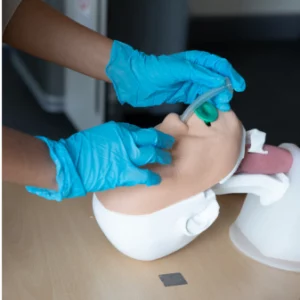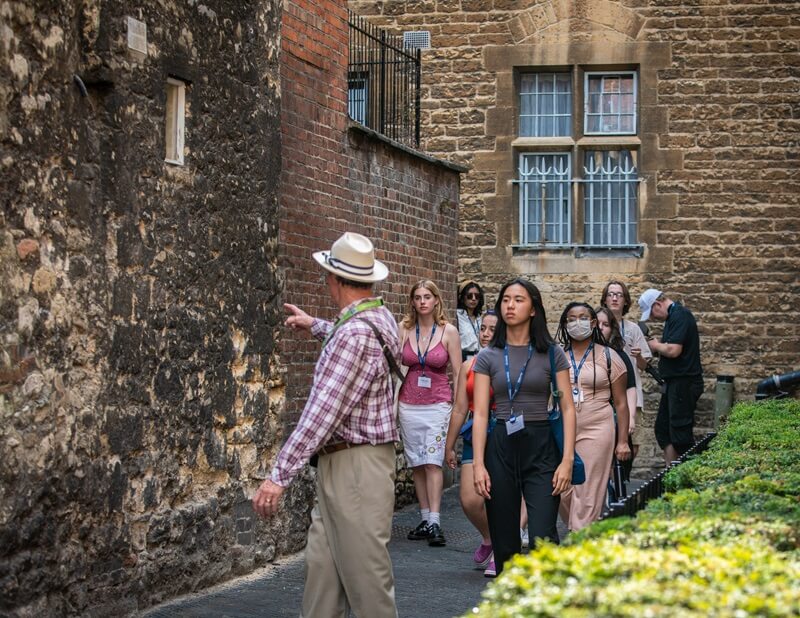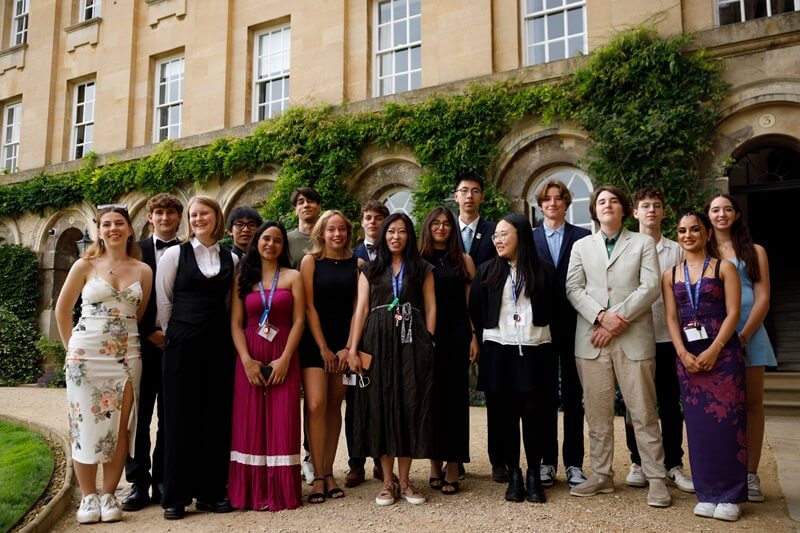Ever wondered how to get into the University of Adelaide?
With its world-class reputation, selective entry, and research-driven approach, Adelaide attracts students who are ready to challenge themselves.
The path isn’t just about meeting entry scores – it’s about showing a strong academic profile, thoughtful preparation, and a clear vision of your future.
Here’s your step-by-step guide to turning preparation into a confident offer.
Why Choose the University of Adelaide?
If you’re aiming for a world-class education in Australia, the University of Adelaide is one of the country’s most respected and sought-after destinations.
Consistently ranked among the top 100 universities worldwide and a proud member of the Group of Eight, it’s recognised for its research-driven teaching, strong industry partnerships, and highly selective entry standards.
This reputation makes it a magnet for ambitious students across the globe who want to combine academic excellence with future-focused career preparation.
The university is especially renowned in medicine and health sciences. The Adelaide Medical School, its largest faculty, is based in the heart of the $3.6 billion Adelaide BioMed City precinct. Here, students access state-of-the-art laboratories, leading research institutes, and major teaching hospitals.
From clinical placements to breakthroughs in cancer studies, neuroscience, and public health, Adelaide offers unrivalled opportunities to combine theory with hands-on learning.
Yet the university’s appeal goes far beyond medicine.
With strengths in engineering, law, business, and the arts, Adelaide provides an intellectually rich and diverse environment. Still, entry is highly competitive – requiring more than just strong marks.
To succeed, you must demonstrate a cohesive academic and personal profile that proves you’re ready to thrive in its rigorous setting.
Understanding Adelaide’s Admissions Framework
The University of Adelaide follows a course-specific admissions model, focusing on academic results, prerequisite subjects, and programme fit.
- Academic Results:
For medicine, the minimum ATAR is 90 (or equivalent IB, A-Levels, AP), though successful applicants usually score higher. Meeting the minimum doesn’t guarantee entry due to strong competition. - Subject Prerequisites:
Medicine assumes prior study in chemistry plus biology or mathematical methods, alongside strong English. Engineering requires mathematical methods and physics, while other faculties set their own non-negotiable subject requirements. Bridging courses may be accepted for missing prerequisites. - Additional Assessments:
Medicine, dentistry, and oral health applicants must sit the UCAT ANZ and, if shortlisted, attend a Multiple Mini Interview (MMI) testing reasoning, empathy, and communication. Final medicine rankings are weighted: 40% academic score, 20% UCAT, 40% interview. Creative programmes may require portfolios, auditions, or statements, while teaching courses often include aptitude tests. - English Proficiency:
International students must meet language requirements, typically through IELTS 6.5 (no band below 6.0) or equivalent. The university also offers a Pathway English Programme (PEP) for applicants needing support.
Subject Planning and Building an Academic Profile
You should plan your subjects early – ideally from the start of your upper secondary years. Here’s how to build a robust academic profile:
- Choose aligned subjects
From early on, pick subjects that align with your intended degree. For medicine or health sciences, prioritise biology, chemistry, and mathematical methods. For law or humanities, advanced English, history or social sciences are strong choices. Adelaide emphasises prerequisite subjects and assumed knowledge for each degree. - Maintain strong grades
Consistency matters. Admissions officers look not just at your raw scores but trends – improving performance is a positive signal, while dips in key subjects may raise doubts. - Opt for rigour
Where possible, take challenging pathways such as IB, A-Levels, AP, or accelerated courses. These demonstrate readiness for high-level university work. - Bridge missing prerequisites
If you lack a required subject, Adelaide offers bridging and equivalency options. For example:- MathTrackX (a program of MOOCs), recognised by the university as equivalent to Year 12 Mathematical Methods.
- Maths Foundations, a self-paced online course, helps fulfill assumed knowledge for mathematics requirements.
- UniLearn Chemistry bridging course offers a pathway to satisfy chemistry prerequisites for some degrees.
- Adelaide also provides Foundation Studies, a one-year programme that builds core academic skills and allows transfer into undergraduate courses.
Join the Immerse Education 2025 Essay Competition
Follow the instructions to write and submit your best essay for a chance to be awarded a 100% scholarship.

Application Materials and Timelines
Submitting a successful application requires more than grades. You’ll also need to prepare:
Personal Statement
Your statement should explain your academic motivations and show how experiences shaped them. If you’ve completed a pre-college medical programme, briefly reference what you gained, such as teamwork or clinical reasoning.
Always connect your goals back to the University of Adelaide and why its strengths – like the Adelaide BioMed City – make it the right fit.
References
Choose referees who know you well and can provide concrete examples of your curiosity, resilience, and growth. For medicine, a science teacher who has seen you persist in lab work is stronger than someone who knows you briefly. Give them plenty of notice to prepare.
Supporting Materials
Many courses require extra assessments. Medicine applicants must sit the UCAT ANZ and, if shortlisted, complete a Multiple Mini Interview (MMI). Dentistry and oral health follow a similar process. Creative degrees may require portfolios or auditions, while teaching often involves aptitude tests.
International applicants must prove English proficiency (e.g. IELTS 6.5 overall) or complete the Pathway English Programme (PEP) if needed.
Step-by-Step Timeline
18–24 Months Before Entry
- Confirm your target degree (e.g. Bachelor of Medical Studies/Doctor of Medicine).
- Select prerequisite subjects: Chemistry plus Biology or Mathematical Methods; English is also essential.
- Begin building your profile with relevant experiences (STEM clubs, volunteering, or pre-college medical programmes).
- International students: plan for English proficiency testing.
12–18 Months Before Entry
- Review Adelaide’s published entry requirements and competitive ATAR/IB benchmarks (medicine minimum ATAR 90; successful applicants often higher).
- Register early for the UCAT ANZ (test usually held in July of the year before entry).
- Draft your personal statement and confirm referees.
- Research bridging options if you’re missing prerequisites (e.g. UniLearn Chemistry, MathTrackX).
9–12 Months Before Entry
- Submit your application:
- Domestic students: Apply through SATAC (South Australian Tertiary Admissions Centre).
- International students: Apply via the University of Adelaide’s online portal.
- Upload required documents, including transcripts and English test scores.
- Sit the UCAT ANZ and ensure results are released to Adelaide.
6–9 Months Before Entry
- Shortlisted candidates for medicine and dentistry will receive an interview invitation (MMI), typically in September–October.
- Finalise English proficiency if not yet completed.
- Track application status through the Admissions@Adelaide portal.
3–6 Months Before Entry
- Offers are made in rounds from November through January (domestic) and earlier for international applicants.
- Accept your offer promptly and prepare supporting paperwork (visa applications, financial documentation, accommodation).
- If conditional, ensure final school results are submitted for confirmation.
1–3 Months Before Entry
- Complete enrolment via MyAdelaide and finalise your class schedule.
- Organise relocation, student housing, and orientation activities.
- Begin preparing academically – for medicine, review chemistry and biology foundations before semester starts.
Where Pre College Medical Programmes Can Help
If you’re applying for a medicine-aligned pathway, you may wonder how experiences outside of school can add value to your application. This is where pre college medical programmes play a meaningful supporting role.
It’s important to be clear: these programmes are not substitutes for academic excellence – your grades and prerequisite subjects remain the most critical factors. However, when used thoughtfully, they can:
- Provide hands-on exposure to medical concepts, from clinical reasoning exercises to introductory lab skills.
- Demonstrate that you’ve actively explored medicine beyond the classroom, which can strengthen your personal statement and interview responses.
- Help you develop transferable skills like teamwork, communication, and problem-solving that admissions panels often look for.
For instance, you might briefly reference a project from a pre college summer medical programme – such as presenting findings on a case study or conducting a supervised lab experiment – to illustrate both your curiosity and your readiness for the challenges of medical study.
The key is balance: these experiences should complement your academic profile, not overshadow it.
If you’d like to gain this kind of exposure, pre college summer medical programmes, like those offered at Immerse Education, provide opportunities to explore medicine in an engaging and supportive environment while building experiences you can reflect on in your application.
Selecting and Leveraging Pre College Medical Programmes
If you choose to take part in a pre college medical summer programme, the value lies in selecting the right type of experience and then translating it into application-ready evidence.
Choose the right programme features:
Look for opportunities that go beyond lectures and offer:
- Mentorship from practising professionals or university-level tutors.
- Capstone projects or presentations that can be turned into credible portfolio pieces.
- Team-based healthcare scenarios, where you can develop and demonstrate collaboration, leadership, and communication skills.
Convert experiences into application assets:
Simply attending isn’t enough when it comes to how to get into the University of Adelaide- what matters is how you frame the experience. You can strengthen your application by:
- Writing short project summaries that include measurable outcomes (e.g. “Designed and delivered a presentation on antibiotic resistance to a panel of tutors”).
- Recording reflection notes that capture what you learned, how you grew, and why the experience deepened your motivation to study medicine.
- Adding outputs such as research posters, presentation slides, or reflective essays to your academic portfolio.
International Applicants to the University of Adelaide: Practical Considerations
If you’re applying from outside Australia, you’ll need to take additional steps:
- English Proficiency: Most undergraduate degrees require IELTS 6.5 overall (no band below 6.0) or equivalent in TOEFL iBT, Pearson PTE Academic, or Cambridge Advanced. Some programmes, such as medicine or law, may expect higher scores. Tests must be taken within two years of entry. If you don’t meet the standard, you may be offered the Pathway English Programme (PEP) as a condition.
- Academic Equivalency: You’ll need a recognised qualification equivalent to Australia’s Year 12 (SACE) or higher education study. Each degree sets minimum entry levels, so check the published requirements for your chosen programme.
- Document Certification: All transcripts and certificates must be certified copies with stamps, signatures, and official wording. Adelaide accepts certification from notaries, consular officials, or registrars.
- Financial & Genuine Student Requirements: You must show evidence of financial capacity and meet the Genuine Student requirement to qualify for an Australian student visa.
- Deadlines & Timing: Competitive courses such as medicine, dentistry, and oral health close on 30 June for Semester 1 entry. For most other programmes, apply at least three months before semester start to allow time for assessment and visa processing.
Turning Preparation Into a Cohesive Story
The strongest University of Adelaide applications are those that feel cohesive and intentional.
Instead of presenting a scattered list of grades and activities, your application should tell a clear story of curiosity, growth, and alignment with your chosen programme.
Begin by anchoring your academics – show how your subject choices and results have equipped you with the foundation to succeed in your intended degree.
Then, highlight a select number of experiences, such as internships, leadership roles, or even pre college medical summer programmes, to demonstrate your motivation and readiness to engage with university-level study.
Finally, connect these elements back to the University of Adelaide itself, making it clear why its programmes, environment, and opportunities are the right fit for your ambitions.
Final Thoughts
Learning how to get into the University of Adelaide is about more than meeting entry requirements – it’s about proving you’re academically prepared, motivated, and aligned with the university’s values.
With strong subject choices, consistent results, and a cohesive narrative, you can stand out. Experiences like pre college medical summer programmes can strengthen your profile, offering credible evidence of curiosity and readiness without overshadowing academics.
To take preparation further, our Sydney summer school provides hands-on learning, mentorship, and projects that enrich applications.
Combined with strategic planning, these opportunities give you the confidence and clarity to approach your Adelaide application with impact.




















